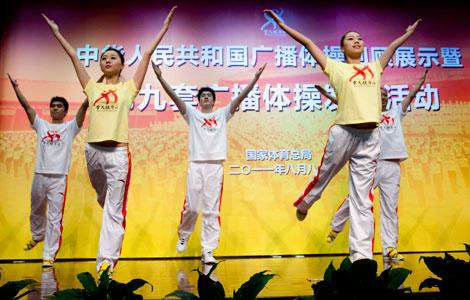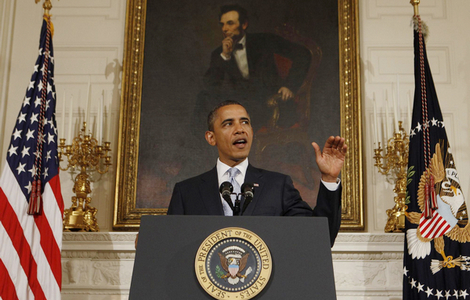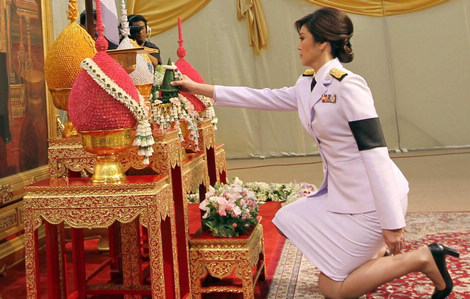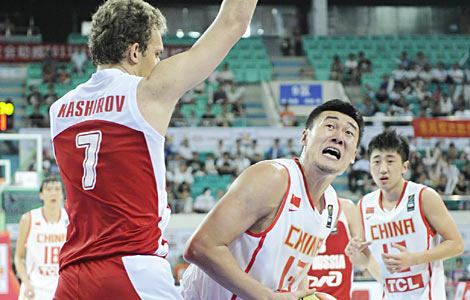Mutual trust requires greater effort
Updated: 2011-05-27 07:30
By Li Xing (China Daily)
|
|||||||||||
WASHINGTON - China and the United States still have much to do to establish mutual trust even though the two countries have come a long way in developing a framework for pragmatic, mature and realistic cooperation.
This was the assessment of current China-US relations made by veteran US diplomats and distinguished academics during a forum co-hosted by China Daily USA and the US-China Policy Foundation to celebrate China Daily's 30th anniversary.
The current US-China relationship "is healthy in that it is quite pragmatic on both sides", Kenneth Lieberthal, director of the John L. Thornton China Center of the Brookings Institution, said in his keynote speech.
The two countries "recognize the parallel interest that should keep us mindful of the need not to let specific issues wash over to poison our overall relationship". He noted that the two countries today have learned to manage most of the thorny issues in their relationship.
As government officials on both sides have become more familiar with each other, they also know "how to signal to each other and keep things from getting out of hand", Lieberthal said.
Despite their "wide-ranging, candid and pragmatic" relationship, Lieberthal said the two countries have not been able to achieve mutual trust after more than 30 years.
"Our biggest failure in our 30-year relationship is that we have not trusted each other. Our relationship is still full of distrust, in both directions," he said, adding that this is a corrosive factor in China-US relations and has the potential to affect the judgment of each other's "long-term intentions".
The result is that many people in the US see China's rise as a threat and want to contain the rise of the world's second-largest economy, while many Chinese interpret every move of the US as efforts to do harm to China, he said.
He said what both countries now face is rebalancing and restructuring their economies. This is an interesting parallel as China is trying to move away from the growth model that relies on excessive energy consumption and exports under its 12th Five-Year Plan (2011-2015) and the US is also trying to embark on a sustainable path by restructuring its own economy.
"We should reduce economic friction between us and wish the other success," he said. "This is the fundamental issue shaping US-China relations overall," he said.
There was a lot of nostalgia as the participants, especially the keynote speakers, have played a role in formulating and implementing the US' China policy. Quite a few had witnessed the ups and downs in China-US relations over the past four decades, ever since Henry Kissinger made his secret trip to Beijing 40 years ago.
Among them, Chas Freeman, former assistant secretary of defense for international security affairs, was Richard Nixon's interpreter during his ice-breaking visit to China in February 1972 as the US president.
Stapleton Roy, who was born in Nanjing, served as US ambassador to China between 1991 and 1995 and saw the two countries' relations weather the collapse of the Soviet Union.
James R. Sasser, former US ambassador to China, was the first to get US congressional members on the ground in China. He had a tough time in 1999 in Beijing when the US embassy was besieged after US warplanes bombed the Chinese embassy in Belgrade.
Lieberthal served as special assistant to Bill Clinton for national security affairs and senior director for Asia on the National Security Council from August 1998 to October 2000.
Recalling his first trip to China in 1976, Leiberthal said that he was awakened in the small hours of July 28, when the Tangshan earthquake flattened the industrial city in northern China.
Richard H. Solomon, a former professor of Political Science at the University of Michigan, joined the United States National Security Council in 1971.
When Kissinger was meeting Chairman Mao Zedong and continuing long hours of negotiations with Premier Zhou Enlai, Solomon and his colleagues were waiting or searching for any information in Washington that would help Kissinger accomplish his mission, according to Professor Chi Wang, co-chairman of the US-China Policy Foundation, who also served as the head of the Chinese Section at the Library of Congress and provided research support to help scholars and politicians learn more about China.
Having seen it all, they came up with a series of ideas to reduce mutual distrust between China and the US and keep the two countries' relationship on a more stable footing.
Both sides "should think about what are the empirical ways to deal with the issue of long-term intentions", Lieberthal said.
He said that military-to-military relations are very important. The two sides should facilitate exchanges to make sure that "there is enough mutual familiarity and mutual trust in times of crisis".
"Communications are important on all levels," he said.
Above all, both sides should recognize that without cooperation between China and the United States, the world would be "more troubled and less secure in dealing with such major challenges as climate change and dysfunctional trade", Freeman said in his address to the forum participants.
Quoting from the Shanghai Communique that Nixon and Zhou signed in 1972, Freeman said that, while recognizing their differences, the two countries should adhere to the principles spelled out in the communiqu to call for "respect for the sovereignty and territorial integrity of all states, non-aggression against other states, non-interference in the internal affairs of other states, equality and mutual benefit, and peaceful coexistence. International disputes should be settled on this basis, without resorting to the use or threat of force".
China Daily
(China Daily 05/27/2011 page11)
Hot Topics
The European Central Bank (ECB) held a conference call late on Sunday ahead of the market opening, pledging the ECB will step in to buy eurozone bonds with efforts to forestall the euro zone's debt crisis from spreading.
Editor's Picks

|

|

|

|

|

|







